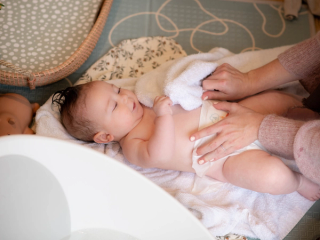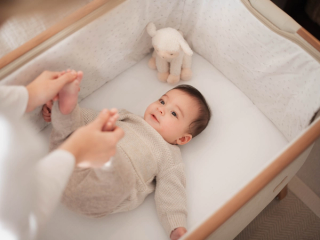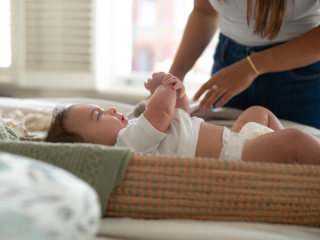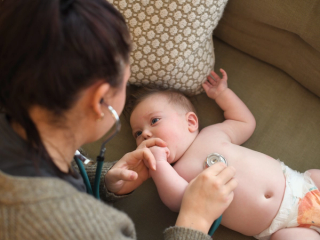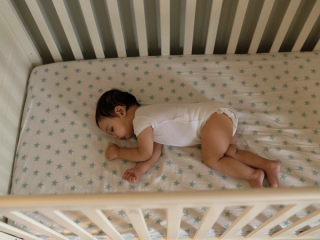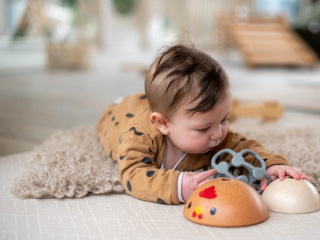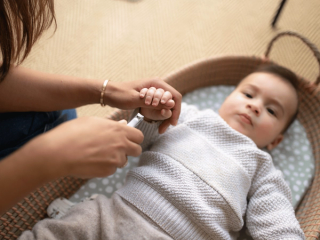
- Home
- Advice Hub
- Newborn
- Essential Newborn Care
- Postnatal Appointments
Postnatal appointments
Louise, The Honest Midwife, discusses postnatal appointments for your little one and what to expect in each session.
Yay! You have your baby in your arms! Huge congratulations on your new arrival. Hopefully you are all snuggled up at home enjoying cuddles with your baby or waiting out the days until you are both well enough to go home.
This is the perfect time for skin-to-skin contact with your baby. Partners can enjoy this special bonding time knowing it is giving Mum a chance to have a shower and grab a two-handed snack, while Mums can use these precious moments to help with bonding and feeding. Babies also love it as it helps to keep them toasty warm. A win-win for everyone!
Changing those first few nappies can come as a bit of a shock, especially if you haven’t been forewarned that a baby’s first poop looks like treacle. This black, sticky substance, known as Meconium is made up of all the products that baby ingested whilst still inside Mum. After a few days, the colour and consistency of baby’s poo will change from black to dark green and then finally settle with an orange /yellowy colour. All very lovely!
In the first few days it is important that your baby is monitored to ensure that they are continuing to thrive, now that they are earth-side. Routinely, babies are weighed on day three, where some weight loss will be expected. Don’t worry, though, because nature has been very clever and given your baby a healthy layer of brown fat, which sustains them until larger volumes of milk arrive to satisfy your little one’s appetite. Your midwife will advise you if the level of weight loss is any cause for concern and, if so, help you with a plan to support you with feeding.
Following on from the day 3 weigh in, you will be given an appointment for your baby to have their heel prick test on day 5. This is part of the National Newborn Screening Programme and will pick up if your baby has any rare, but potentially serious, health conditions, including sickle cell disease and cystic fibrosis. Very few babies will test positive for the conditions but for those that do, the benefits of treatment are vast. To undertake the test, four droplets of blood are taken from your baby’s heel and pressed onto a test card. Results will be provided by letter within 6-8 weeks. However, in the unlikely event that your baby does test positive, you will be notified sooner.
If you have your baby in hospital, most babies are offered the Newborn Hearing Screening Test before being discharged home. If you have your baby at home, the test will be offered in the first few weeks. Your baby is played gentle clicking noises via a soft earpiece and their responses are recorded. This test often needs to be repeated as clear responses are not always detected. This happens quite often but doesn't mean your baby has a hearing problem. It could be that they were a little unsettled or had a blockage, so try not to worry too much.
Prior to leaving hospital, or your home birth team leaving, a plan of visits or appointments should be discussed with you. Make sure you have the correct contact number for your midwifery team so that you are able to ask for support if you are worried about your baby or are struggling with feeding.

